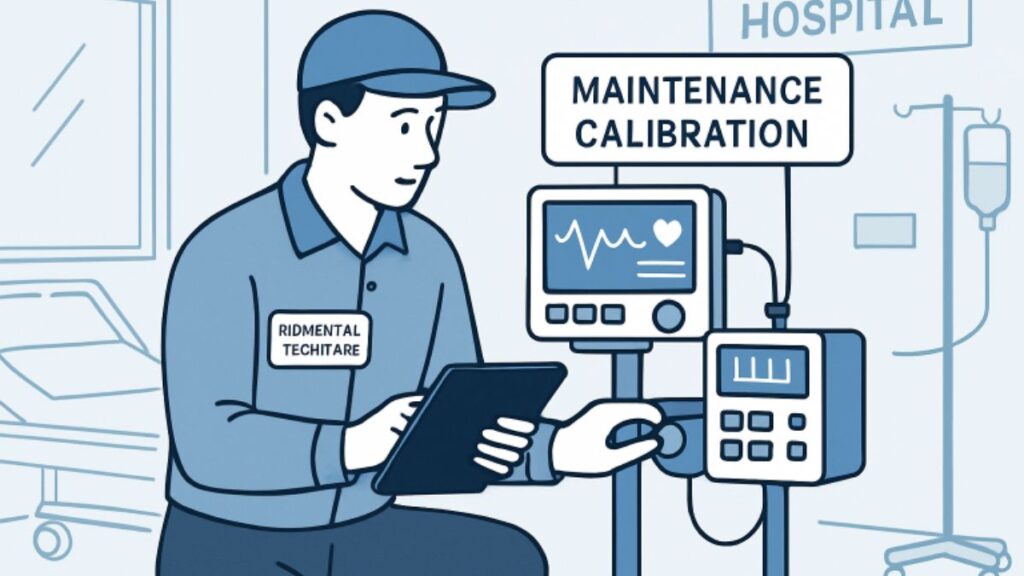The Role Of Biomedical Services In Modern Healthcare
The demand for reliable, advanced healthcare is higher than ever. Patient care at every stage relies on specialized medical equipment managed by vital healthcare professionals. By working with biomedical engineering technicians, healthcare facilities ensure their equipment remains operational, accurate, and compliant. Biomedical services go beyond repairs to include inspections, calibration, and preventive measures. Reports show their work guarantees seamless operation of diagnostic devices and life-support systems. The COVID-19 pandemic highlighted the critical role of biomedical professionals in maintaining care continuity and patient safety.
Why Preventive Maintenance Is Non-Negotiable
Preventive maintenance is essential for healthcare reliability. It involves routinely servicing equipment to reduce downtime, avoid costly repairs, and protect patient care. Regular maintenance extends equipment lifespan, boosts safety, and increases confidence in healthcare. Institutions practicing preventive care experience lower replacement costs and higher availability of equipment through checklists, scheduling, and logging, fostering a proactive management culture. Skilled professionals like biomedical engineering technicians Houston TX play a vital role in ensuring this process runs smoothly, keeping critical medical devices safe, efficient, and ready for use.
Calibration And Safety Checks: The Foundation Of Accuracy
Accurate calibration is essential for high-quality clinical results. Even a slight miscalibration can compromise diagnoses and treatments, risking patient health. Regular safety checks and strict adherence to calibration protocols are necessary to meet operational and regulatory standards. Proper calibration ensures devices perform as intended, allowing clinicians to trust results for all procedures. As healthcare technology advances, so do quality assurance measures. Biomedical teams must stay updated on new calibration methods, use certified testing tools, and maintain thorough documentation for audits and traceability.
Managing The Equipment Lifecycle Efficiently
Hospital equipment performance depends on lifecycle management, from procurement to retirement. It includes tracking age, repairs, warranty, and regulations. Digital tools improve visibility, enabling better decisions on upgrades and replacements. This leads to efficient inventory management, less waste, and better patient care.
Embracing Technology Advancements In Biomedical Care
The landscape of biomedical technology is rapidly evolving, with innovations like artificial intelligence, predictive analytics, and remote monitoring creating new opportunities for patient care. Smart diagnostic devices and Internet of Things (IoT) technologies facilitate earlier detection of potential equipment issues, which can minimize downtime and extend the effectiveness of preventive maintenance strategies.
For healthcare providers aiming to stay ahead, investing in new technologies and training staff is now essential, not optional.
Choosing The Right Biomedical Partner
Partnering with a reputable biomedical service provider is crucial for healthcare facilities aiming for operational excellence. The ideal partner should offer quick response times, current certifications, a compliance history, and strong references. Customizable contracts and staff training are valuable for tailored support. As medical technology evolves, a reliable partner keeps clients updated on upgrades and standards, supporting immediate needs and strategic planning to improve patient care quality and safety.
Future Trends In Biomedical Services
The future of biomedical services is data-centric, with integrated platforms and predictive analytics enabling real-time monitoring across sites for rapid diagnostics and better asset use. As healthcare adopts IoT and cloud solutions, industry risk management—from equipment failures to compliance—is improving. Sharing best practices globally promotes transparency, standardization, and responsiveness in biomedical support. Healthcare leaders embracing these trends can enhance current outcomes and prepare for future challenges.
Conclusion
Comprehensive biomedical services are crucial in healthcare. Preventive maintenance, calibration, equipment lifecycle management, and innovation promote safer, efficient, patient-focused care. Partnering with skilled biomedical firms and adopting new data-driven tech helps healthcare institutions evolve with patient needs and medical advances, ensuring they can provide exceptional care at each stage.






